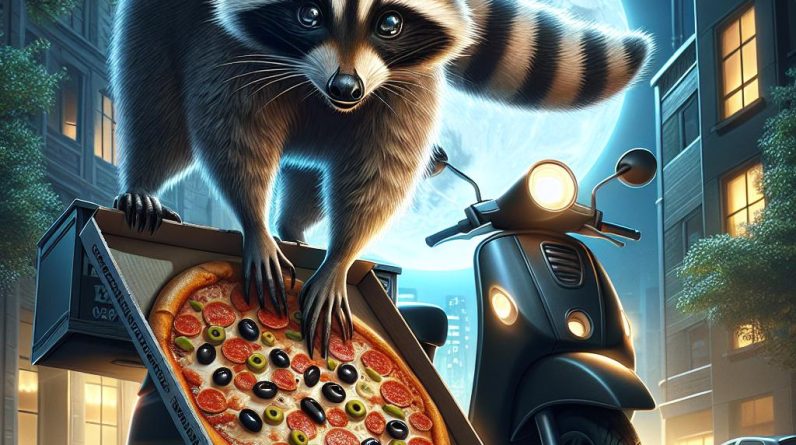Pigeons: smarter than we think! From navigating vast distances to recognizing human faces—these feathered friends have some serious brainpower! 🕊️✨ #PigeonFacts #BirdBrains #AnimalIntelligence #FeatheredFriends #NatureIsAmazing #WildlifeWonder #funfacts #fun #interesting #facts #didyouknow #factsdaily #randomfacts #interestingfacts #amazingfacts
The Bizarre World of Pigeons
1. Pigeon Characteristics
Pigeons, particularly rock pigeons (Columba livia), are one of the most familiar sights in urban environments. Their unique features set them apart from other birds, with:
- Variety of Colors: Pigeons come in various shades, including grays, browns, white, and even iridescent hues.
- Intelligent Birds: Studies show that pigeons can recognize themselves in mirrors and have an excellent memory.
- Unique Eating Habits: Pigeons consume a diet primarily made up of seeds and grains and are known to eat more than we think.
2. The Social Life of Pigeons
Pigeons are inherently social creatures.Thay thrive in flocks, frequently enough establishing strong bonds with one another. Their social behavior includes:
2.1 Communication Skills
Pigeons communicate through:
- Coos and Whistles: Varied vocalizations to express their emotional state.
- Body Language: physical displays, such as puffing up their feathers or bobbing their heads, convey messages.
2.2 Mating Rituals
Pigeons are monogamous and exhibit captivating courtship rituals that include:
- Mutual Preening: Strengthens their bond.
- Displaying Feathers: Males puff their chests to attract females.
3. Fascinating Facts About Pigeons
Dive into some weird and splendid facts about these feathered friends:
| Fact | Details |
|---|---|
| Navigation Skills | Pigeons can find their way home from distances over 1,000 miles, using Earth’s magnetic fields and sun positioning. |
| Lifespan | Wild pigeons live about 3–5 years,but domesticated varieties can live up to 15 years or more. |
| Pigeon Racing | Pigeon racing has been a popular sport worldwide, where pigeons are trained to return to their homes from long distances. |
| Color Vision | Pigeons can see ultraviolet light, enhancing their ability to spot food. |
4. The Benefits of Pigeons
Pigeons offer numerous benefits,both ecological and societal:
4.1 Urban Ecosystem
Pigeons play a critical role in urban ecosystems. As scavengers, they help keep cities clean by consuming waste. Additionally, they:
- Support the food chain by providing nourishment for predators like falcons.
- Pollinate plants and contribute to maintaining biodiversity.
4.2 Therapeutic Benefits
Spending time around pigeons can have positive mental health effects, such as:
The Bizarre World of Pigeons
Understanding Pigeons: An Overview
Pigeons, also known as rock doves, are much more than just common urban birds. Thes interesting creatures belong to the family Columbidae, which comprises over 300 species worldwide. Despite their ordinary appearances, pigeons exhibit unbelievable resilience, intelligence, and unique social behaviors that set them apart in the avian world.
Unique Characteristics of Pigeons
- Color and Plumage: Pigeons come in various colors and patterns, ranging from the standard gray to striking whites, browns, and even iridescent hues.
- Strong Homing Instinct: Pigeons possess an innate ability to navigate and return home from great distances,which is why they have been used as messenger birds for centuries.
- Highly Adaptable: These birds thrive in various environments, including cityscapes, farmland, and natural habitats.
The Intelligence of pigeons
Pigeons are frequently enough underestimated in terms of intelligence.They have shown remarkable cognitive abilities, such as:
- Problem-Solving Skills: Research has demonstrated that pigeons can solve complex puzzles and even recognize themselves in mirrors.
- Shape and Color Recognition: These birds can differentiate between various shapes, colors, and even human faces.
- Social Learning: Pigeons learn from one another, demonstrating social behaviors that strengthen their communities.
Pigeon Behaviors: Mating and Reproduction
The reproductive habits of pigeons are both fascinating and peculiar.Here are some insights:
- Monogamous Relationships: Pigeons typically mate for life and display strong pair bonds.They engage in elaborate courtship rituals, including bowing and billing.
- Unique Nesting Practices: Pigeons prefer to nest in sheltered areas, using twigs, grass, and feathers to create their homes.
- Egg-Laying: A female pigeon usually lays two eggs, which both parents incubate for about 17 to 19 days.
The Role of Pigeons in Urban Ecosystems
Pigeons play a important role in urban ecosystems. Here are some benefits they provide:
- Seed Dispersal: By consuming fruits and seeds, pigeons aid in plant reproduction through seed dispersal, promoting local flora growth.
- Food Source: Pigeons are a vital food source for various urban predators, including hawks.
- Cultural Representatives: Pigeons have been symbols of peace and love in various cultures, and their presence often reflects the vibrancy of urban life.
Pigeons Around the World: A Fascinating Case Study
The Homing Pigeon Tradition
The use of homing pigeons dates back thousands of years. Their remarkable homing ability has been utilized in various contexts:
- Throughout history,homing pigeons were employed as military messengers,delivering critical data during wars.
- In many cultures, racing pigeons are a popular sport, with enthusiasts training their birds to fly back home over long distances quickly.
Examining Pigeon Lifespan and Health
The average lifespan of a pigeon in the wild is about 3 to 5 years, while domesticated pigeons can live up to 15 years or more with proper care. Here are some common health concerns to keep in mind:
- Respiratory Issues: pigeons are susceptible to various respiratory diseases, especially in unsanitary conditions.
- Parasites: Common parasites include mites and worms, which can affect their health substantially.
- Nutrition: Providing a balanced diet rich in grains, seeds, and fresh greens is crucial for their overall well-being.
Pigeon Myths and Misconceptions
Despite their presence in our daily lives, pigeons are frequently enough misunderstood. Here are some common myths debunked:
- Pigeons are Just “Rats of the Sky”: This derogatory term overlooks their intelligence and vital ecological contributions.
- pigeons Carry Diseases: While any animal can possibly carry pathogens, healthy pigeons are generally safe and pose little risk to humans.
- Pigeons Are Noisy and Aggressive: Like any species, behaviors vary between individual pigeons, and many are quite friendly and tame.
Pigeons in Popular Culture
Pigeons have made their mark in various facets of popular culture, influencing art, literature, and films.
- Symbol of Peace: The dove, a member of the pigeon family, represents peace in many societies, often depicted in art and literature.
- Pigeon Racing: This sport celebrates the remarkable abilities of pigeons, with events drawing attention and admiration from worldwide enthusiasts.
- Pigeons in Films: Movies featuring pigeons, such as “Pigeon: Impractical,” showcase their quirky and charming personalities.
Table: Fascinating Pigeon Facts
| fact | Details |
|---|---|
| Number of Species | Over 300 species worldwide |
| Average Lifespan | 3-5 years (wild); up to 15 years (domesticated) |
| Weight | Usually between 200-500 grams |
| Eggs per Clutch | Typically 2 eggs |
Practical Tips for Pigeon Enthusiasts
Whether you’re a pigeon owner or a bird enthusiast, consider these practical tips:
- Environment: Create a clean and spacious living area for your pigeons to thrive.
- Diet: Offer a balanced diet consisting of seeds, grains, and occasional fruits or vegetables.
- Socialization: spend time with your pigeons to foster trust and strengthen your bond.
- Health Monitoring: Regularly check for signs of illness and seek veterinary care if needed.
First-Hand Experience with Pigeons
As a passionate pigeon keeper for several years, I have developed a deep understanding of these incredible birds. My first experience was with a rescued baby pigeon, which I named “Sky.” Watching her grow and learning to trust me was a rewarding journey, highlighting the intelligence and sociability that pigeons possess.
Through training Sky, I’ve enjoyed watching her perform tricks, showcasing her problem-solving abilities and navigating homemade obstacle courses. The bond formed with pigeons can be far deeper than one may imagine, filled with moments of joy and connection that highlight their unique personalities.
- Reducing Stress: watching pigeons can have a calming effect on the mind.
- Fostering Compassion: Caring for these creatures fosters empathy and nurturing in individuals, especially children.
5. case studies: Pigeons in Research
Pigeons have played a crucial role in various scientific studies:
5.1 Cognitive Studies
Research has demonstrated pigeons’ ability to:
- Count and recognize numerical quantities.
- Distinguish between different art styles,highlighting their sophisticated visual perception.
5.2 Navigation Research
Pigeons are also pivotal in understanding animal navigation. Studies involve:
- Tracking their migratory patterns and how they utilize environmental cues.
- Exploring their abilities in urban landscapes, revealing how evolutionary adaptations occur in human-dominated environments.
6. First-Hand Experiences with Pigeons
Sharing personal encounters can enrich our understanding of pigeons:
6.1 Rescue Stories
Many have found joy in rescuing and rehabilitating injured pigeons, leading to:
- A profound connection with these birds.
- Increased awareness about their importance in urban environments.
6.2 Bird Watching
Birdwatchers often find pigeons fascinating due to:
- The different breeds and their behaviors.
- The challenge of observing their intricate social interactions.
7. Practical Tips for Enjoying Pigeons
Embrace the presence of pigeons in your daily life with these tips:
7.1 Creating a Pigeon-Kind Environment
- Provide clean water sources and bird feeders in your gardens.
- Plant native vegetation that provides food and shelter.
7.2 Engaging with Local Pigeon Communities
Join local pigeon clubs or online communities to:
- Learn about pigeon care and racing.
- Share experiences and connect with fellow enthusiasts.





